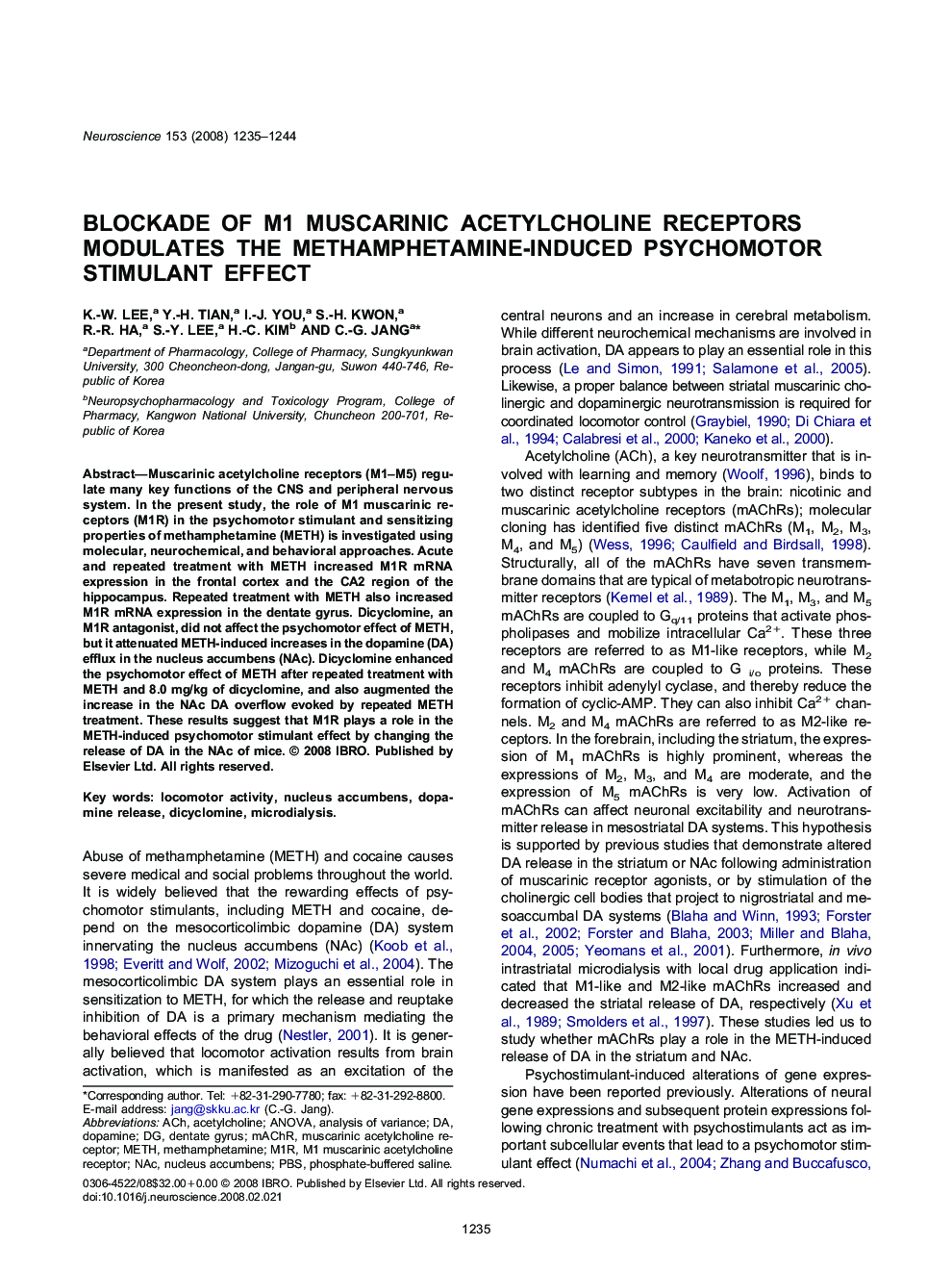| Article ID | Journal | Published Year | Pages | File Type |
|---|---|---|---|---|
| 4341793 | Neuroscience | 2008 | 10 Pages |
Muscarinic acetylcholine receptors (M1–M5) regulate many key functions of the CNS and peripheral nervous system. In the present study, the role of M1 muscarinic receptors (M1R) in the psychomotor stimulant and sensitizing properties of methamphetamine (METH) is investigated using molecular, neurochemical, and behavioral approaches. Acute and repeated treatment with METH increased M1R mRNA expression in the frontal cortex and the CA2 region of the hippocampus. Repeated treatment with METH also increased M1R mRNA expression in the dentate gyrus. Dicyclomine, an M1R antagonist, did not affect the psychomotor effect of METH, but it attenuated METH-induced increases in the dopamine (DA) efflux in the nucleus accumbens (NAc). Dicyclomine enhanced the psychomotor effect of METH after repeated treatment with METH and 8.0 mg/kg of dicyclomine, and also augmented the increase in the NAc DA overflow evoked by repeated METH treatment. These results suggest that M1R plays a role in the METH-induced psychomotor stimulant effect by changing the release of DA in the NAc of mice.
